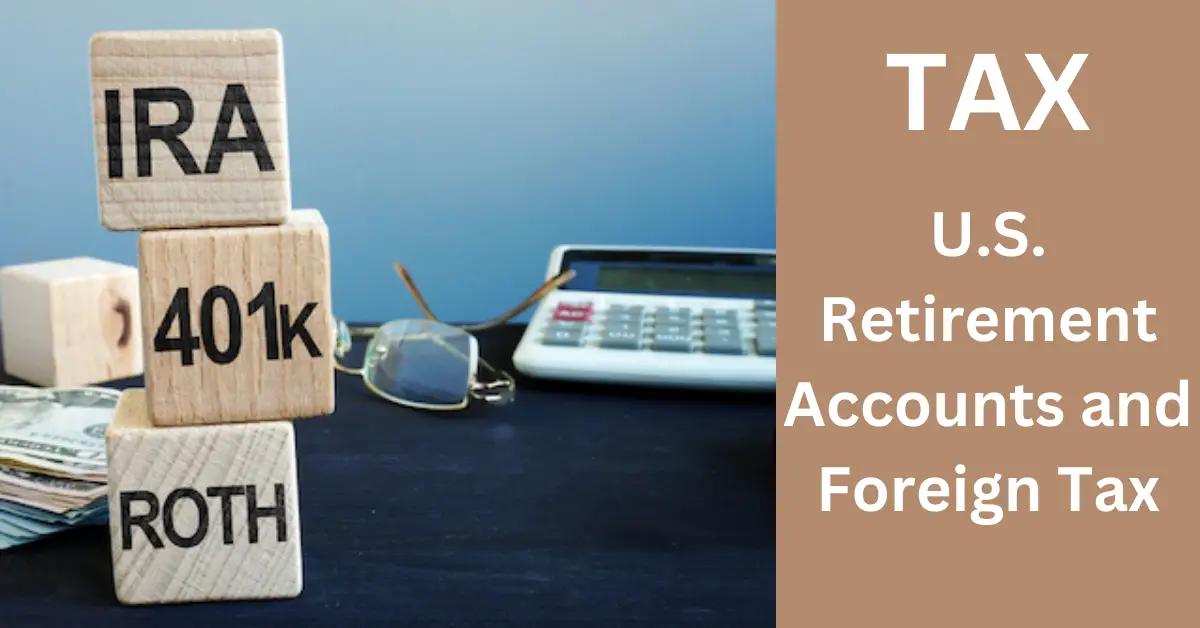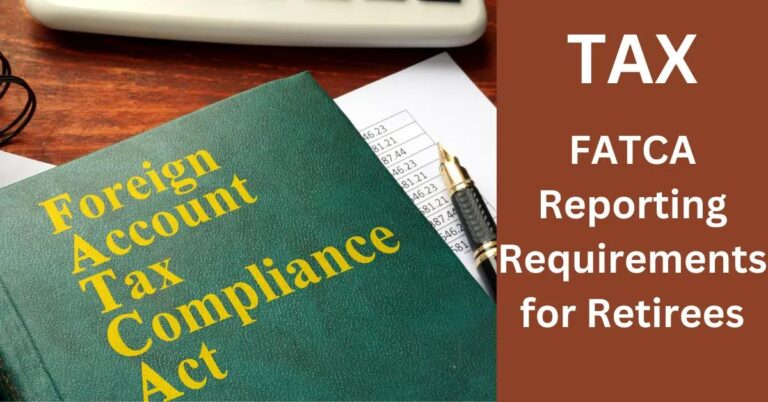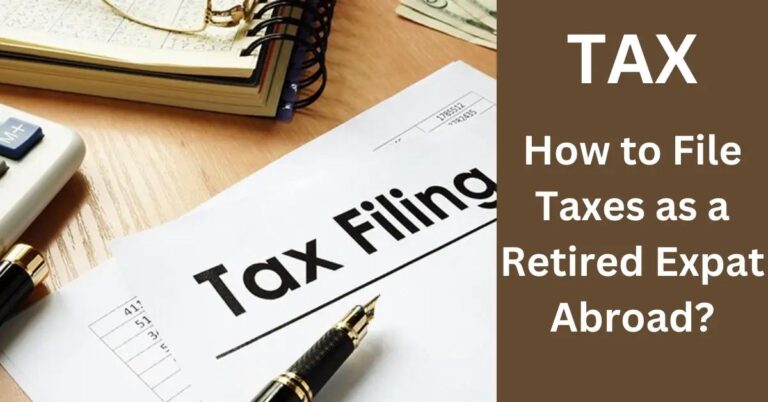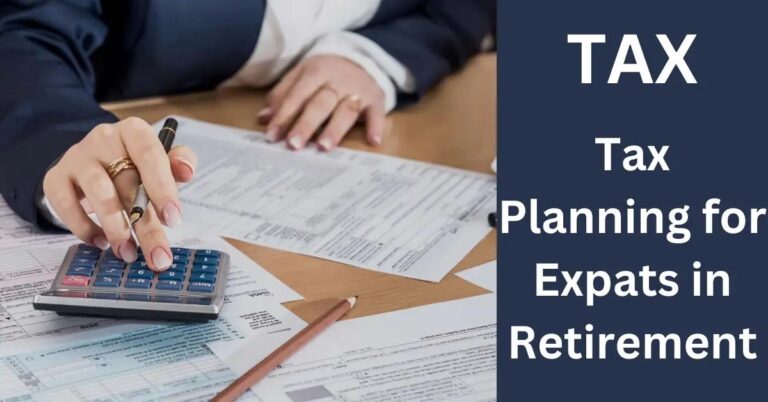TL;DR:
- U.S. citizens with foreign retirement accounts must report them to the IRS.
- Foreign pensions and assets are generally taxable and require detailed reporting using IRS forms like 1040, 8938, and 3520.
- Tax treaties can prevent double taxation, but knowing specific agreements is crucial.
- FBAR filing is required for foreign accounts exceeding $10,000, including some retirement accounts.
- Non-compliance with FBAR or FATCA can lead to significant penalties.
- Reporting foreign pension income must be done accurately on IRS returns.
- IRS seeks transparency on worldwide income; penalties apply for non-disclosure.
- Strategies and professional guidance are suggested for compliance and minimizing tax liabilities.
Navigating the world of U.S. retirement accounts while living abroad can be a maze. As an expatriate, understanding how your U.S. pension and foreign retirement accounts are taxed is crucial. Do you have to pay taxes on your U.S. pension if you live overseas? How are foreign assets reported? Clear up these puzzles with insights on tax implications and compliance. Arm yourself with strategies to ease your U.S. tax obligations and ensure your financial peace of mind abroad.
U.S. Retirement Accounts and Foreign Tax: What's Affected?
Are foreign retirement accounts taxable in the US? The quick answer is: yes, often they are. If you have a foreign retirement account as a U.S. citizen, you must report it. The IRS wants to know about almost all foreign assets. This includes pensions and retirement accounts. Not filing the right forms can cause issues. You might face fines or extra taxes. You should make sure you report everything to avoid problems.
Now, you might ask: Do U.S. citizens pay taxes on foreign assets? Again, yes. Any foreign income generally needs reporting. And, there could be taxes depending on the country’s rules.
If you live abroad, do you pay tax on your U.S. pension? Yes. Your U.S. pension is still taxable even if you live outside the U.S. The tax rules do not change just because you move. You need to pay attention to both U.S. and local tax laws.
Understanding the foreign tax implications for U.S. retirees living abroad is vital. Some treaties help avoid being taxed twice. These treaties spell out which country gets to tax what. You have to know these treaties to benefit from them.
It is possible to plan your taxes as an expatriate. This means using certain strategies to lower the taxes you owe. Look for ways to align your tax planning with the laws of both countries.
Is there a way to ensure compliance with U.S. tax laws while benefiting from foreign accounts? You bet. The key is keeping accurate records and filing all required reports. By doing so, you stay compliant and reduce financial stress. If you want more details on compliance and strategies, the IRS website offers detailed guidance on international taxation rules.
Requirements for Reporting Foreign Retirement Accounts to the IRS
You must report foreign retirement accounts to the IRS. This includes any interest earned abroad. The government requires transparency about these assets for tax purposes. You need to follow certain rules to ensure everything is correct and legal.
How to Declare Foreign Pension Income on U.S. Tax Returns
Follow specific steps to declare foreign pension income. First, gather all statements related to your foreign pension. Next, use the IRS Form 1040 to report this income. On this form, list any foreign pensions as earned income. Knowing exactly where to log this income helps avoid mistakes.
Detailed Guidance on IRS Forms for Foreign Asset Reporting
To report foreign assets, use Form 8938 and also Form 3520 if needed. These forms help you declare foreign pensions and other assets. You must provide detailed information about each account. This includes account numbers and interest amounts. Ensure accuracy to meet all IRS rules.
Legal Obligations for International Tax Compliance
International tax laws require you to report foreign financial interests. Ignoring these rules can lead to penalties. So, it's crucial to understand your legal obligations. The Foreign Account Tax Compliance Act (FATCA) ensures the U.S. gets information about your foreign assets.
Tips for Ensuring Accuracy in Foreign Retirement Account Declarations
Accuracy in reporting prevents problems later. Double-check everything before you file. Keep a record of all documents you use for your report. Consulting a tax expert may help you, especially when laws change. Understanding these can protect you from penalties.
For more on IRS foreign asset reporting and compliance, visit the IRS website. It covers all the details you need for taxes on foreign retirement accounts.
Foreign Retirement Accounts and U.S. Tax: Key Points
U.S. citizens who live abroad must follow rules about foreign pensions. The foreign pension taxation system can be tricky. The U.S. taxes worldwide income no matter where you live. This includes any money received from foreign pensions. But not all hope is lost, since tax treaties might offer some help.
A foreign pension exemption comes from special agreements. These treaties can reduce or remove double taxes on income. Treaties spell out which country taxes pensions from work done in a foreign land. Seizing these treaty benefits takes careful planning and understanding of international tax law.
A hot topic is the FBAR—do foreign pension accounts need it? Yes, many times they do. FBAR stands for Foreign Bank Account Reporting. If the total foreign accounts go over a certain amount, the IRS needs to know. This includes pension accounts held outside the U.S.
Social Security from abroad is another area to tackle. Where do you report foreign Social Security income on a 1040? This is important. On the U.S. tax return form, Social Security counts as other income on line 8. It's basic, yet tricky.
Tax treaties might help some folks avoid giving money to both the U.S. and the foreign land. But each situation is unique. It's wise to talk to a tax pro to use all options. Foreign pensions and related taxes need a sharp eye and keen strategy. By knowing these rules, expats can ease the tax bite and keep more of their hard-earned cash.
Understanding the Challenges of FBAR and FATCA Compliance
Many people wonder, "Are retirement accounts subject to FBAR?". The precise answer is yes, they often are. When Americans have over $10,000 in foreign accounts, they must file FBAR. Even some foreign retirement accounts fall under this rule.
Now, let's look at U.S. citizens paying taxes on foreign assets. Yes, taxes are due on foreign income. The IRS taxes citizens on their worldwide earnings. This means U.S. citizens must include foreign accounts in their tax files.
What happens if someone does not follow FBAR rules? Non-compliance leads to severe consequences. Penalties can reach $10,000 per violation. For willful violations, penalties can top $100,000 or even half the account value. This is why compliance is crucial.
To comply with the Foreign Account Tax Compliance Act (FATCA), understanding is key. FATCA wants foreign banks to tell the IRS about accounts held by U.S. citizens. Failure to report foreign accounts has big penalties.
Best practices can help U.S. citizens stay compliant with international asset reporting. First, know filing deadlines and requirements. Always report foreign assets truthfully. Keeping detailed records of foreign transactions is helpful. Consider consulting a knowledgeable tax professional if in doubt. They can offer guidance and ensure full compliance with IRS standards. Following these steps can provide peace of mind when dealing with foreign assets.
Remember, staying informed on foreign tax responsibilities can save you from unwanted penalties. Compliance ensures you meet all legal duties and protect your financial health as a U.S. citizen living abroad. Always strive to stay informed and updated on tax laws.
U.S. Retirement Accounts and Foreign Tax: What's Affected?
Are foreign retirement accounts taxable in the US? The short answer is yes. If you are a U.S. citizen with a foreign retirement account, you will need to report it to the IRS. This includes income gained from the account. Understanding how to report foreign pension income on your U.S. tax returns is crucial. You must include this income on your IRS Form 1040. This helps avoid hefty penalties for incomplete reporting.
Managing foreign-financial assets can feel like juggling too many balls. But there are effective strategies you can use. You should keep detailed records and track all transactions linked to your foreign accounts. It is wise to consult a tax expert familiar with both U.S. and foreign tax laws. Their insight can guide you in managing these assets while keeping tax costs low.
The importance of comprehensive overseas financial asset reporting cannot be overstressed. The IRS demands full disclosure of all worldwide income. Any oversight puts you at risk for penalties. Act transparently and file your foreign financial assets using the right forms. This ensures compliance with U.S. tax laws and helps avoid legal trouble.
Meeting compliance standards for expatriate retirement funds can be tricky. Expatriates need to know the legal rules in both countries they live in. Follow the financial regulations of each nation to stay compliant. Learn about any tax treaties that might apply and see if they offer any benefits for your situation.
Methods for tax-efficient withdrawals from foreign retirement accounts differ. Planning withdrawals after understanding the tax rules from both the U.S. and foreign perspectives is key. Knowing when and how much to withdraw can minimize your tax burden. This strategy saves you money and reduces stress during retirement.
Staying informed and compliant with tax laws is vital. Visit the official IRS website for detailed guidance or consult a tax professional.
Conclusion
Navigating U.S. taxation on foreign assets and pensions can be complex. We discussed the rules for U.S. retirees abroad and the IRS's reporting demands. Tax treaties can ease double taxation worries if used correctly. Always stay compliant with FBAR and FATCA to avoid penalties. Managing your taxes efficiently ensures peace while living overseas. Understanding these guidelines helps secure your financial future abroad. Follow the strategies shared to thrive in your global adventure with confidence and clarity.












